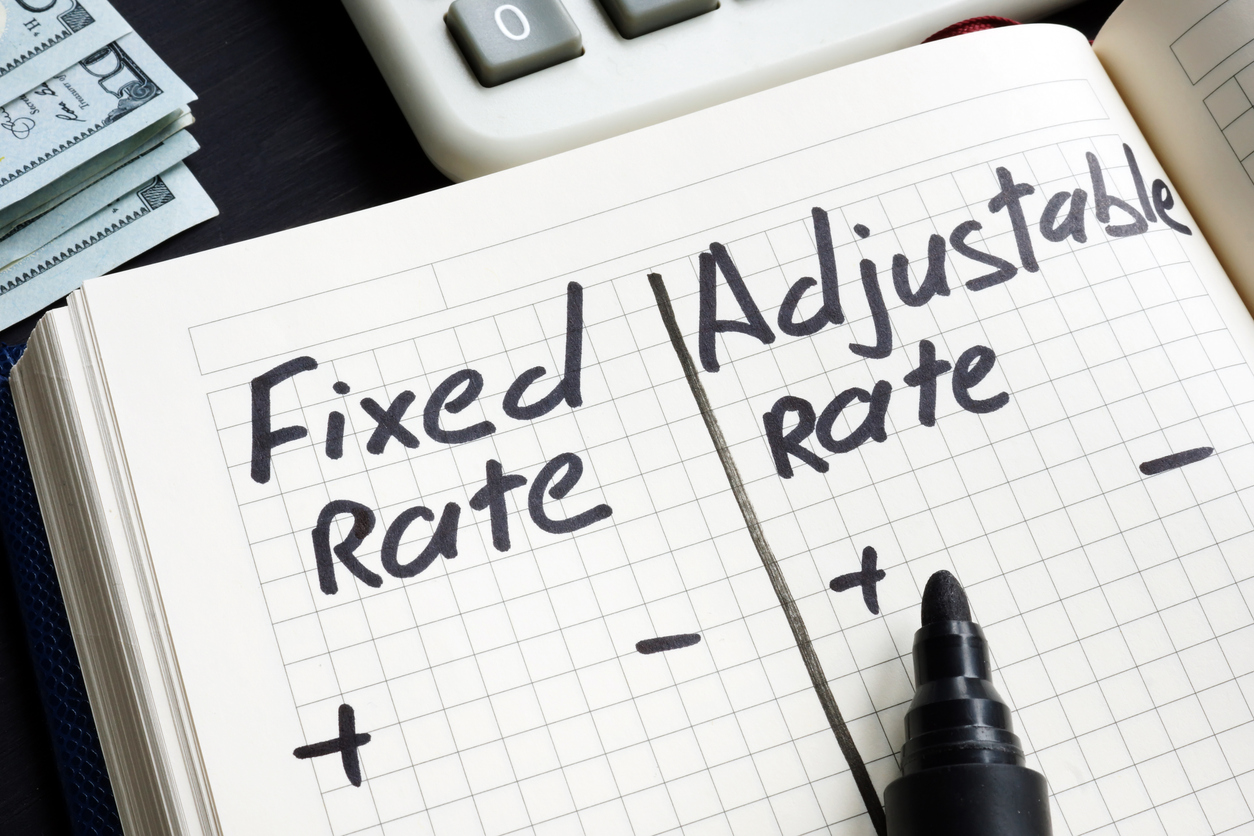
For the last few years, there has been a lot of talk about fixed mortgage rates.
First, they were super low. Now, they are peaking at rates that are unsustainable for some households.
So, let’s explore fixed mortgage rates in greater detail. What are they, why should you choose them, and when should you use them?
You’ll find the answers to all those questions in this article, along with a quick update on what is happening in the financial markets mid-2023.
What Are Fixed Mortgage Rates?
A fixed mortgage rate refers to a mortgage loan where the interest rate remains fixed or locked in for a specified period, typically ranging from 1 to 5 years. During this fixed period, the interest rate and monthly mortgage payments remain the same.
We previously discussed how banks set their fixed mortgage rates and you can read about that here. Rates offered may vary between lenders, so it’s advisable to take advice from a mortgage broker to find the most competitive rate for your circumstances.
Fixed rates provide financial consistency to borrowers, but it’s important to note that this kind of lending may be subject to break fees or early repayment penalties. This can happen if you decide to make changes to the loan, such as paying off some (or all) of the mortgage before the fixed term ends or if you want to refinance.
For those reasons, it’s recommended to carefully review the terms and conditions of any mortgage agreement and seek professional advice before committing to a fixed rate mortgage.
Why Should You Fix?
There are several reasons why you might choose a fixed term mortgage rate. Some of the main ones are:
- Predictability and stability: With a fixed mortgage rate, your interest rate and monthly payments remain the same for the duration of the fixed term. This provides stability and predictability in your budgeting since you know exactly how much you need to pay each week, fortnight or month.
- Protection against interest rate fluctuations: By choosing a fixed rate, you shield yourself from potential increases in interest rates during the fixed term. If interest rates rise, your fixed rate remains unaffected, allowing you to maintain the same level of repayment.
- Planning and financial security: A fixed mortgage rate allows you to plan your finances with more certainty, making it easier to budget and manage your monthly expenses. This can be particularly beneficial if you want to avoid any nasty surprises that may come with variable interest rates.
- Peace of mind: For borrowers who value peace of mind and prefer a level of financial security, a fixed mortgage rate can provide reassurance and reduce the stress associated with potential interest rate fluctuations.
When Should You Fix?
As you can see, there are plenty of benefits to having a fixed rate for your home loan. However, there are also some things to be mindful of. You can benefit from having your mortgage fixed if interest rates continue to climb. However, if interest rates are expected to lower, then fixing your home loan at a peak rate is not a good idea.
This all makes perfect sense, right? But how do you know when rates are going to climb or when they might decrease? Well, the best thing to do is seek advice from an expert who regularly works in the financial market – a trusted mortgage broker. They monitor what is happening in the market and can usually make fairly accurate predictions on what interest rates are going to do.
In the current market, the Reserve Bank has indicated that its monetary tightening period is at an end and the OCR is on hold. That means that future adjustments to the OCR should be cuts rather than increases. So, it is not advised to jump on long term fixed rates simply because they are the lowest on offer in this moment.
In theory, if the OCR decreases in the second half of 2024 as predicted, then mortgage rates should also decrease. And you don’t want to have your mortgage fixed at a 5 year term on a rate that was set at the peak of the OCR. Infometrics chief forecaster, Gareth Kiernan advises, “If this is the peak in mortgage rates, it might be the last point in time to be fixing a mortgage for too long.” [source]
If your mortgage rates are about to come up for renewal, then it’s time to seek advice about your next move. Chat with the team at Mortgage Suite now for mortgage advice you can trust.
What’s Been Happening This Month?
Mortgages Are Down
The data is in and new mortgage lending is down 23% on April last year and 45% on April 2021. Clearly, the Reserve Bank’s goal to impact monetary policy with changes to the OCR has had a clear impact on people’s borrowing power and appetite.
LVR Restrictions Eased
As of 1st June, the Reserve Bank has eased its loan-to-valuation restrictions. This has been good news for first home buyers. As banks have reduced their criteria for uncommitted monthly income, people may not be eligible to borrow more than they could before, giving more opportunities for home buying.
Inquiry is up and it could translate to more first home buyers securing property. But, as interest rates are still high, this should not be done without advice.
Are You In Mortgage Stress?
Mortgage stress is defined as households having to spend more than 30% of their income in servicing their mortgage. By that definition, many households in NZ are currently experiencing mortgage stress. Recent Canstar analysis shows that to be able to afford an average-priced $995,000 house with a 20% deposit, and repay the mortgage on current rates, Auckland households need nearly $80,000 more than the average income (which is $141,853).
Canstar general manager Jose George says the analysis shows how tough it is in today’s market to avoid mortgage stress. “Paying more than 30% of the household income into a mortgage creates all sorts of other pressures, including being able to afford other bills and maintain general wellbeing. It is a really difficult situation to be in and our analysis suggests numerous families across New Zealand will be facing financial pain.”
Do you think you might be in mortgage stress? The good news is that it appears interest rates are near their peak. But, you might need a sustainable solution for right now. If that is the case, get in touch with our friendly team here at Mortgage Suite. We may be able to come up with a solution that suits your current financial situation.
Chat with us now.



















